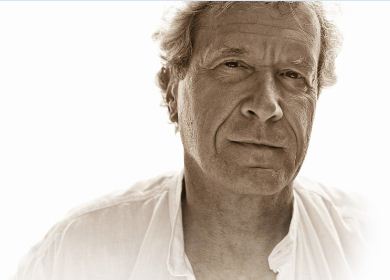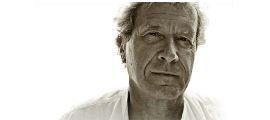A Thriving Economy – A Revolution in Consciousness
By Patrick Bridgeman
We thought it was high time that we gathered the world’s foremost experts on holistic economics to help guide us all from where we are to where we would like to be. John Perkins, Charles Eisenstein and Marcus McKeown share their vision of an ideal economy and give practical advice on how we can create it.
AN IDEAL ECONOMY
Our experts’ general consensus is that an ideal economy is one where the focus is not on money or profit, but rather people and the planet. There is no desire to hoard and there is no such thing as poverty because the world’s resources are equally and sustainably distributed among all the peoples of our planet. People are free from debt, free to follow their passions, and do their best to look after each other and the planet they are temporarily residing on.
“I envision an economic system aligned with the principles of the Gift,” Charles explains. “That doesn’t necessarily mean a world without money; it means a world in which the role of money shrinks, and in which money itself takes on some of the properties we associate with gifts. For example, gifts are meant to be passed on, not hoarded. It also means an economy in which work is sacred – in which our labours go toward things that are meaningful to us.”
“In order to have a healthy, sustainable economy, we must look beyond money,” says Marcus. “Money is only the currency used to trade for the things of life that allow us to eat, sleep, learn, buy, build and explore at a very basic and one-dimensional level.”
JOB SATISFACTION
“Today, money is often an obstacle, not an ally, when it comes to finding truly satisfying work,” Charles continues. “To change that, we have to change the money system so that no one can profit from polluting, from drawing down resources that should be common to all, or from the accumulation and control of wealth.
We are all born with gifts, and if we don’t apply them toward a purpose that is meaningful to us, then your job or profession becomes intolerable, and we think, ‘I wasn’t put here on Earth to do this.’ What I’m suggesting is that we orient ourselves toward what we want to give to the world.”
John agrees, “If we each follow our passion, and all head in the same direction – towards a better future for all – we can achieve amazing things.”
THE OLD WAYS
When John Perkins went to business school in the 1960’s, the idea of ‘profit above-all-else’ became the driving force of businesses and corporations. This led to the exploitation and destruction of communities and the environment, and we now know that this ideology is not sustainable. Luckily, it has already begun to collapse.
“I think we are entering a period of the biggest revolution ever experienced by human beings,” John told us, “bigger than the agricultural or industrial revolutions. This is a revolution of consciousness.”
“If the population of a country believes that the purpose of life is to strive for financial wealth,” Marcus adds, “you will find that most, if not everything, within the economy is built to facilitate that preordained notion. However, if the same people agree that the purpose of life is to experience a quality of living that allows peace, rest and personal appreciation, the focus will be less on financial matters and more on community and sharing.”
POWER TO THE PEOPLE
In the current system, money rules. Recognising this, it may seem that corporations are running everything, including the banks and governments, but in reality, we the people have the power – consumer power.
“We cast a vote every time we purchase something,” John says. We shape our future and the future of the planet every time we give financial support to one thing over another. Imagine what can happen if we focus on purchasing local, sustainable, holistic and organic products and services. This simple idea could revolutionise the economy. It’s beneficial for people and the planet, for communities and nature.
Charles writes, ‘Since the future economy will be one that rewards activities that contribute to the good of society and the planet, people can begin to orient toward those things today. This isn’t only altruism – it is a practical preparation for the future.’
THE NATURE OF COMMUNITY
“When we pay for everything, we lose community because we no longer really depend on the people who meet our needs – we can just pay someone else to do it,” says Charles. “That is why part of my vision is actually economic degrowth: more gardening and less food shopping, more children playing outside and less day care, more cooking and less restaurant takeout, more time laughing, dancing, singing and playing and less time paying for entertainment, more fixing and less buying new stuff, more beautiful, durable goods and fewer disposables, more sharing and less owning, more leisure and voluntarism and less paid work, more open source software, more free content and less intellectual property.”
Marcus concurs, “The vision is one of a country that shares, cares, allows, explores and focuses on enabling every person to experience their hearts desires.”
“An economy also has to be an extension of ecology,” offers Charles. “Whatever we take from nature, we must give back in a form usable by other beings. Zero-waste manufacturing, permaculture and bioremediation are all steps in this direction, along with green energy technologies.”
GETTING THERE
“To create a healthy economy we need to create a healthy understanding of life and the meaning of the same,” says Marcus. “Without this, things will simply continue as they are.
A healthy economy is one that is ever changing but always in the context of what matters most. The measurement for what matters most can be as broad as allowing love, peace, support and compassion to hold a higher rank than money can ever achieve.”
“Prayer and meditation is a good way to look inside ourselves,” John adds, “but we also need to look outside of ourselves at the world we are creating and take responsibility and take action.”
This sentiment was echoed when John went to visit HH Dalai Lama at his home in India. HH told him, “It is good to pray and meditate, but it is not a substitute for action. Don’t just pray for a better world, or meditate on a better world, act to make the world a better place. You must take action every single day to make a better world.”
___
JOHN PERKINS, former economic hit man, is now a best-selling author, as well as a founder and board member of Dream Change and The Pachamama Alliance. This Winter Solstice, he will lead ‘A Journey to Prophecies in the Lands of the Maya.’
johnperkins.org
CHARLES EISENSTEIN, author of ‘Sacred Economics,’ is coming to Dublin in July as part of his world tour. He will be giving talks and working on his next book.
charleseisenstein.net
MARCUS MCKEOWN is a teacher, facilitator, presenter and author based in Ireland. His focus is on breaking through the illusions of life and bringing people to a place of truth, personal fulfilment and happiness.
marcusmckeown.com



